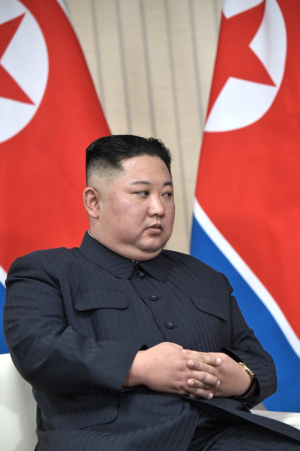Scholars, experts, observers. and media outlets in South Korea have shown a mixed reaction to the latest news that North Korean leader Kim Jong Un had delegated some responsibilities to his close aides, including his sister Kim Yo Jong.
This indicates that the South might not be ready to respond when there are rapid and unexpected changes in the state of affairs of the North and the Korean peninsula.
South Korea’s spy agency National Intelligence Service (NIS) told the country’s lawmakers in a closed briefing on August 20 that Kim had reportedly given his sister partial authority to oversee “general state affairs” in order to ease the leader’s workload.
According to the office of Representative Kim Byung-kee, who attended the briefing, Kim Jong Un is still the ultimate authority and exercises “absolute power,” although the decision to transfer more power to his younger sister further bolstered the argument that she is now the country’s “de facto second in command.”
The country’s largest daily, Chosun Ilbo, said in an editorial that things that it has never been seen before are frequently happening in North Korea.
“There has never been a single delegation of the leaders’ rule in the North,” the paper said.
“…Until now, only the highest authority has been able to deal with South Korea, the U.S., and military issues in North Korea. Recently, however, Kim Yo Jong came to the front and sent out hard-line messages to the South and the U.S.”
The paper also noted that “there have been rampant rumors about Kim’s health condition. It is said that the North would hold another congress in January next year, which was never held under the previous government. What is happening in North Korea?”
Chosun Ilbo’s editorial reflects South Korea’s current position on the North well. It appears that no one has a full grasp of the situation in the North and how to respond to possible changes. In particular, many raised skepticism over the South Korean government’s announcement.
Chang Song-min, who served former President Kim Dae-jung as a political affairs secretary and as head of the state affairs monitoring office, said North Korean leader is in a coma, and the decision to delegate some of his power to his aides is proof.
The same claim emerged a few months ago from media reports and several prominent North Korean defectors, including the defector-turned-South Korean politician Thae Yong-ho. Chang was also among the figures reporting the rumor.
However, the South Korean government dismissed those reports and denounced those who claimed Kim was in critical condition for spreading fake news.
This time, Chang reiterated that no North Korean leader would entrust any of his authority to another person unless he was too sick to rule or was removed through a coup.
He claimed that he had secured the information from a source in China, adding that all photographs of Kim released by the North in recent months were fake.
Meanwhile, lawmaker Kim Ki-hyun of the main opposition United Future Party said the South Korea government’s announcement is merely a political tactic to distract from the recent domestic outcry over its failure in real estate policies and management of the outbreak of COVID-19.
“Given the nature of the North Korean regime, there cannot be a ‘delegation.’ There has never been such case there,” Kim said.
“Through the third-generation succession, the system of one-man dictatorship became stronger… It is hard to believe the NIS that Kim delegated power only because of stress at a time when the regime is struggling the most due to flood damage, international sanctions and the outbreak of COVID-19,” he added.
“With its approval rating falling, it is questionable whether the government is merely trying to distract public sentiment with the North Korean issues,” Kim said.

































